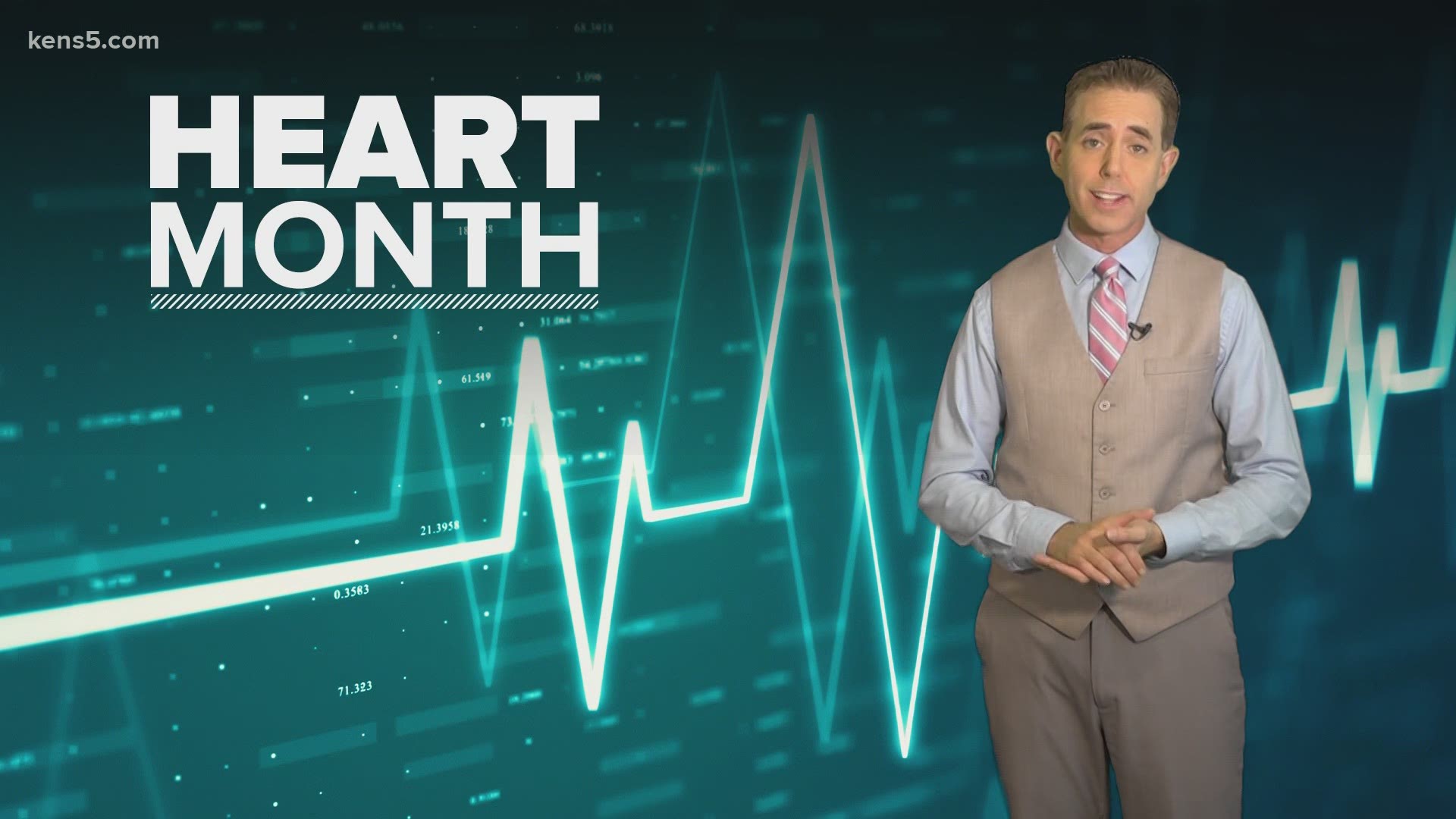SAN ANTONIO — While the world's focus continues to be the novel coronavirus, it's easy to lose sight of other health concerns.
February is American Heart Month, a time to spread awareness about the signs of heart disease. That effort is even more important this year because the signs of symptoms of COVID-19 tend to overlap with heart disease.
That's why the American Heart Association launched it's "Don't Die Of Doubt' campaign.
"The Don't Die of Doubt campaign was created to remind people that hospitals are still the safest place to go when medical emergencies strike, particularly cardiovascular disease," said Dr. Dawn Hui, an associate professor cardiac surgery at UT Health San Antonio.
That's why it's just as important now as it was before the pandemic to recognize the signs of heart disease before it impacts your life.
"The past few weeks I've been under the weather pretty bad—cardiac arrest (and) I had two heart attacks," said Roland Segovia, the former mayor of Pearsall, in a recent video for the Frio COVID Lifeline. "I got airlifted to San Antonio. I had four stents put into my arteries after those episodes. I left this world for a day and a half."
Segovia ended up passing away early Wednesday morning. Like many, he was afraid to go to the hospital while the pandemic continues.
"My kidney doctor had been telling me that I had to go get some chest X-rays at the hospital. I kept telling him no I kept telling him no because of the COVID-19 and because of my underlying conditions," Segovia goes on to say in the video.
"I think the most effective message we can tell people in Heart Month and going forward is that if you have symptoms, whether they are typical or atypical, then you should seek help from your health professional to help figure out," Hui said.
Those symptoms include shortness of breath during everyday activities; swelling in legs, feet and ankles; having trouble sleeping as you lie flat, and just feeling tired.
"Because COVID-19 is taking over the world, it's important for people to remember that, just because COVID-19 happened, cardiovascular diseases have not stopped affecting people."
Hui said it's important to know your body, and to be aware of potential changes. If something just doesn't feel right, never hesitate to call your doctor.

